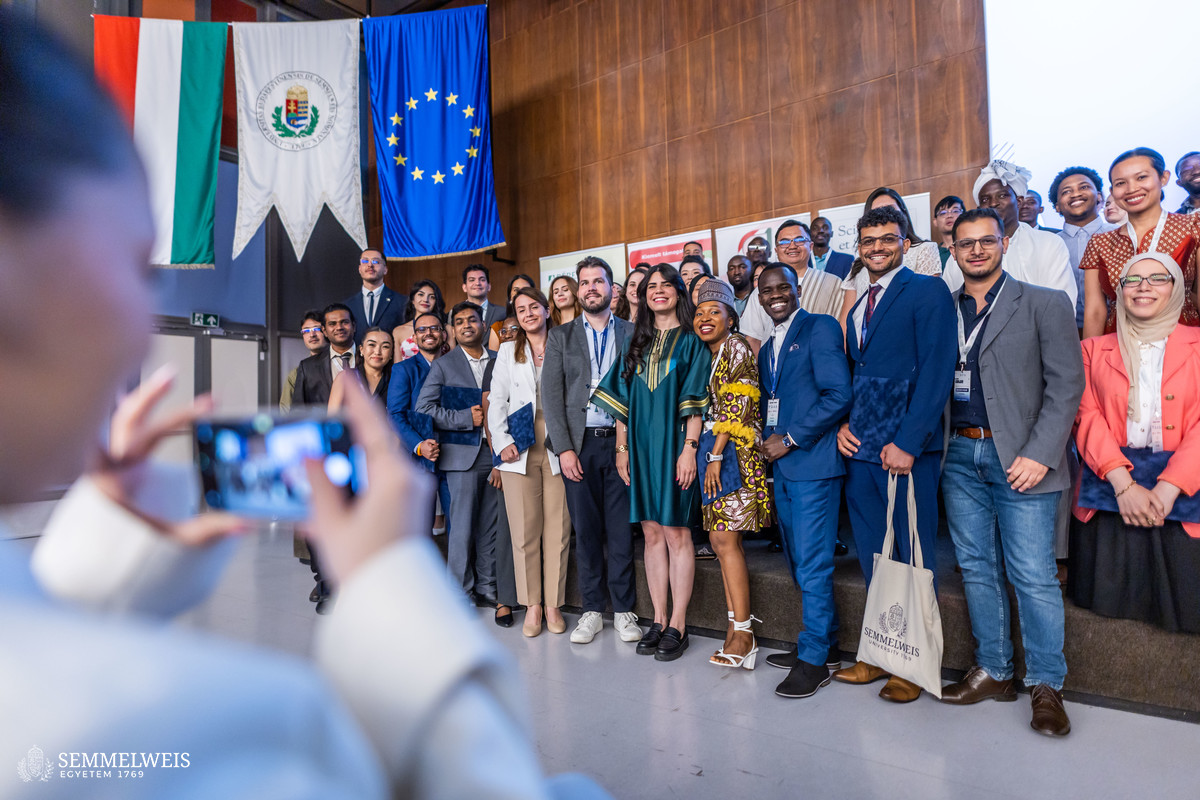
In recent years, Semmelweis University has established itself as a leading institution for doctoral education in Hungary, actively fostering an international environment for research and academic development. One of the most significant events highlighting this commitment is the annual PhD conference organized by the university, which draws participants from around the globe. The recent hosting of Hungary’s largest international event for PhD students exemplifies Semmelweis University’s role in advancing doctoral studies and supporting early-career researchers.
Semmelweis University and Its Role in International Doctoral Education
Located in Budapest, Hungary, Semmelweis University is renowned for its biomedical and health sciences programs. Over the years, it has broadened its international reach, appealing to a diverse body of students and researchers. The university’s strategic focus on internationalization is reflected in its efforts to increase the participation of international students in its doctoral programs. The institution’s commitment to fostering a global research community makes it an ideal host for major academic events such as the recent PhD conference.
Details of the Recent Hungary’s Largest PhD Conference at Semmelweis University
The two-day Spring Wind Conference 2025, held from June 20 to 22 at the campus of Semmelweis University, epitomizes this dedication. Organized by the Hungarian Doctoral Students’ Union (DÖK), this event brought together doctoral candidates, early-career researchers, and master’s students from Hungary and beyond. The conference’s core aim was to provide a platform for young scientists to present their research, share ideas, and build international collaborations.
This year’s conference was particularly notable for launching Hungary’s new three-tier doctoral training system, which is set to be implemented in September. Presentations covered a wide array of scientific disciplines, emphasizing the multidisciplinary nature of research at Semmelweis University. The conference also included signing ceremonies of cooperation agreements, such as the partnership between the Hungarian Development Promotion Office andDOSZ, further reinforcing Hungary’s strategic commitment to research excellence and international cooperation.
Key Themes and Topics Discussed at the Conference
- The future of doctoral training and research excellence in Hungary
- International mobility and inclusion of foreign doctoral candidates
- Innovations in biomedical and health sciences research
- Collaborations across disciplines and borders
Participants had the opportunity to engage in 40 diverse scientific sessions, discuss innovative research methods, and explore funding opportunities. The event was also an occasion to highlight Hungary’s advancements in doctoral education through initiatives like the Stipendium Hungaricum scholarship program, which supports international students studying in Hungary and contributes to the country’s growing reputation as a hub for high-quality doctoral training.
The Significance of International Doctoral Conferences for Young Researchers
Hosting such large-scale international events underscores Semmelweis University’s dedication to nurturing the next generation of scientists. Conferences like this facilitate vital networking opportunities, collaboration, and exchange of knowledge among the brightest young minds. They also help elevate Hungary’s position in global research communities, encouraging international students and scholars to consider Hungary as a prime destination for doctoral studies.
Benefits for International Students and Researchers
- Exposure to cutting-edge research and innovative methodologies
- Opportunities to forge international collaborations and joint projects
- Enhanced visibility and recognition within the global scientific community
- Access to Hungary’s supportive research environment and funding opportunities
Furthermore, Hungary’s strategic investments in research infrastructure and policies aimed at increasing the number of doctoral candidates—especially international students—are making it an increasingly attractive destination for advanced scientific training. The country currently hosts over 2,000 international doctoral students enrolled in various programs, underscoring its growing global reputation.
How Semmelweis University Supports Doctoral Researchers
Beyond hosting conferences, Semmelweis University offers comprehensive support for doctoral candidates, including scholarships, research funding, and mentorship programs. The university’s emphasis on transdisciplinary research and clinical applications ensures that doctoral students gain both scholarly depth and practical skills essential for their future careers.
The university’s strategic development includes maintaining high standards in quality assurance, accreditation, and international collaboration. These efforts align with Hungary’s broader goals to elevate the quality and competitiveness of its higher education and research sectors.
Opportunities for Aspiring PhD Students
- Join the university’s vibrant research community with access to state-of-the-art laboratories and facilities
- Participate in international mobility programs like Erasmus+ and Stipendium Hungaricum
- Engage in multidisciplinary research projects that address real-world health challenges
- Benefit from tailored mentorship and soft skills development programs
If you are considering doctoral studies in Hungary or looking for a research environment that fosters innovation and international collaboration, Semmelweis University presents an ideal opportunity. Discover more about the university’s doctoral programs and application procedures to take the next step in your academic career.
Next Steps for Prospective Doctoral Candidates
Applying to doctoral programs at Semmelweis University involves exploring scholarship options, preparing research proposals, and aligning your academic interests with faculty expertise. The university’s admissions team provides support to international applicants, ensuring a smooth enrollment process.
Additionally, prospective students can participate in open days, virtual information sessions, and connect with current researchers to get firsthand insights into doctoral life at Semmelweis University. The university’s commitment to fostering an inclusive and dynamic research environment makes it a compelling choice for ambitious researchers worldwide.
Conclusion
The recent hosting of Hungary’s largest international PhD conference at Semmelweis University reaffirms its position as a leading hub for doctoral education and research excellence in the region. By continually investing in international collaborations, research infrastructure, and talent development, Semmelweis University ensures that its doctoral programs remain competitive and attractive to students worldwide.
If you are interested in pursuing advanced research in health sciences or related fields, exploring opportunities at Semmelweis University could be your next step toward a successful academic and professional career. Visit their official website to learn more about their doctoral programs and join the vibrant community of global researchers contributing to pioneering scientific advancements.
Submit your application today or contact the university’s admissions team to start your journey in Hungary’s dynamic research environment.

